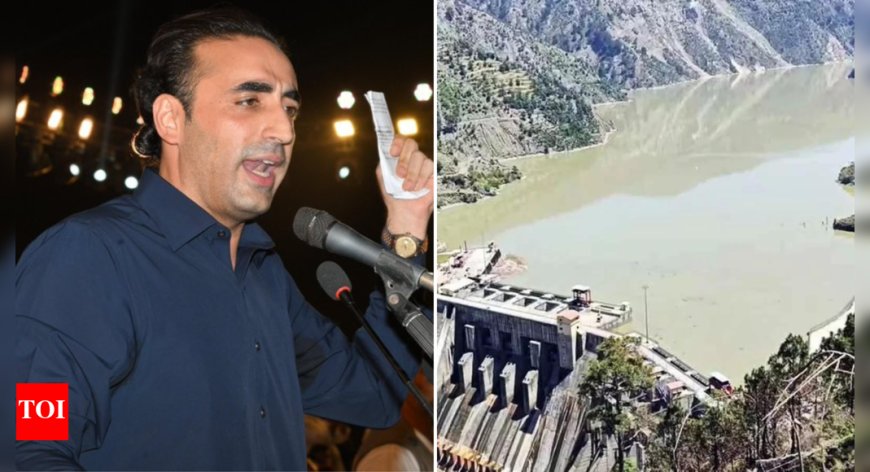‘Either water will flow or their blood will': Former Pakistan FM Bilawal Bhutto's threat to India on Indus Waters Treaty
Following a deadly terrorist attack in Pahalgam and India's suspension of the Indus Waters Treaty, former Pakistani foreign minister Bilawal Bhutto-Zardari threatened India, asserting Pakistan's claim to the Indus River. Tensions have escalated, leading to internal discord in Pakistan over water projects and India initiating the repatriation of Pakistani nationals. Both nations are preparing for potential international disputes.

‘Either Water Will Flow or Their Blood Will': Former Pakistan FM Bilawal Bhutto's Threat to India on Indus Waters Treaty
In a recent development, Bilawal Bhutto, the former Foreign Minister of Pakistan, issued a stark warning regarding the Indus Waters Treaty with India. His statement, "Either water will flow or their blood will," has stirred significant controversy and raised concerns among diplomatic circles.
Understanding the Context of the Indus Waters Treaty
The Indus Waters Treaty, signed in 1960, regulates the sharing of water resources from the Indus River and its tributaries between India and Pakistan. This agreement is crucial for both nations, as water scarcity poses a serious threat to agriculture and livelihood in the region. However, disagreements over water distribution have been a recurring issue, exacerbated by political tensions and climate change impacts.
Bilawal Bhutto's Statement: An Overview
Bilawal Bhutto's provocative statement comes amid escalating tensions over water supply and usage rights under the treaty. His comments emphasize the dire consequences of failing to address Pakistan's water needs, which he claims are being jeopardized by India's actions. Such strong rhetoric highlights the increasing urgency of this geopolitical issue, as water shortages have led to domestic strife and economic hardships in Pakistan.
Diplomatic Reactions and Implications
The statement has drawn mixed reactions domestically and internationally. While some see it as a necessary defense of Pakistan's water rights, others view it as a dangerous escalation that could exacerbate already heightened tensions between the two nuclear-armed neighbors. Diplomatic analysts argue that such remarks could hinder future negotiations aimed at resolving water disputes in a cooperative manner.
Prospects for Future Negotiations
Despite the inflammatory nature of the remarks, there remains a possibility for dialogue. Both countries have historically engaged in talks to resolve conflicts, whether related to water rights or other issues. Moving forward, it is critical for both governments to prioritize diplomacy and seek mutually beneficial agreements.
Conclusion: A Call for Peaceful Resolution
As the situation develops, it is imperative for both parties to engage in constructive dialogue rather than escalate tensions. Global concerns over water scarcity necessitate cooperation in managing shared water resources, thereby ensuring peace and stability in South Asia. Continued monitoring of the Indus Waters Treaty and its implications will be essential for regional security.
For more updates on this developing story, visit News by dharmyuddh.com. Keywords: Bilawal Bhutto threats India, Indus Waters Treaty controversy, Pakistan water rights, India Pakistan relations, former Pakistan FM statement, water disputes South Asia, water scarcity geopolitical tensions, Indus River agreement, diplomatic negotiations water resources, Pakistan India dialogue







